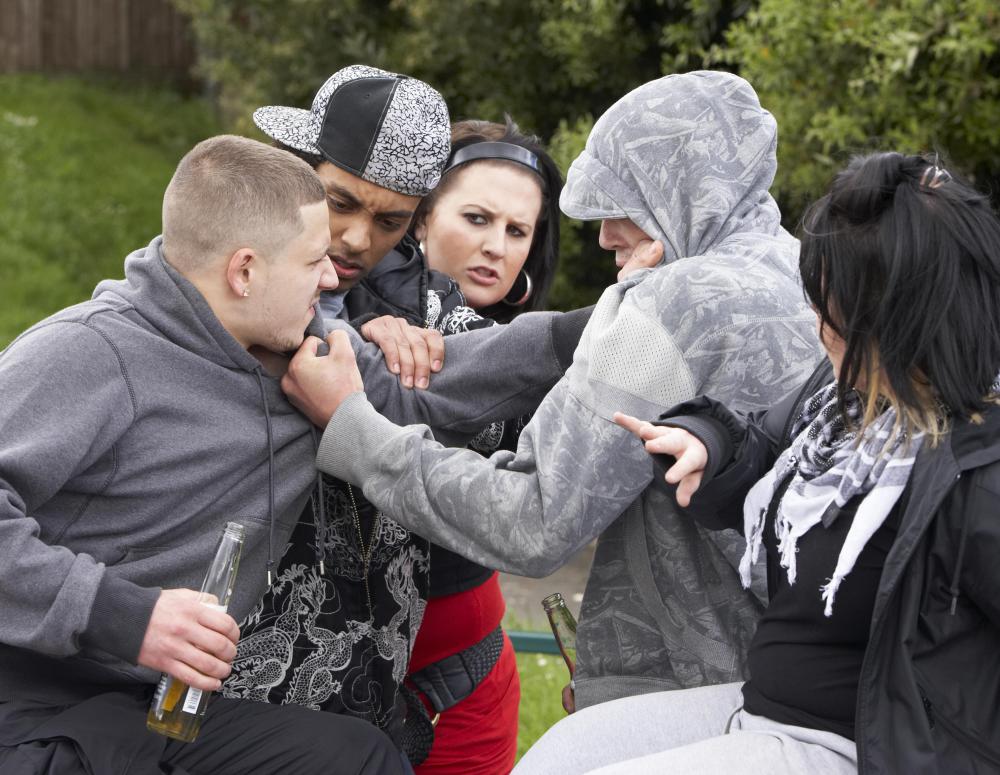At WiseGEEK, we're committed to delivering accurate, trustworthy information. Our expert-authored content is rigorously fact-checked and sourced from credible authorities. Discover how we uphold the highest standards in providing you with reliable knowledge.
What is an Arrest?
An arrest is the process of apprehending a person who is suspected of or has been charged with a criminal action. There are a number of different situations in which police officers or law enforcement agents can make lawful arrests, and in the US, this is typically allowed with probable cause or through the execution of an arrest warrant. Once an individual is apprehended, he or she is then typically detained in accordance with regional and federal laws in a country. Malicious arrests and wrongful arrests are forms of arrest in which inadequate evidence is presented for the apprehension of a suspect or when the detainment is done for malicious reasons.
Lawful arrests are typically made by a police officer or other member of a law enforcement agency. This type of arrest involves an individual suspected of committing a crime being physically apprehended and detained to await further legal action. For a lawful arrest to occur, a police officer in the US must typically have probable cause to suspect a person of committing a crime or be executing a warrant issued by a judge. The police officer or law enforcement agent who conducts the apprehension is typically referred to as the arresting officer.

A citizen’s arrest is a process by which a citizen who is not a member of recognized law enforcement can apprehend someone seen committing a crime. The conditions under which this type of apprehension can be performed can be fairly complicated, however, and if not done properly, the person arresting someone can be charged with kidnapping, false imprisonment, and impersonating a police officer. Citizen’s arrests should, therefore, be done rarely, and instead law enforcement officers should be notified of a crime whenever possible. In some areas, the manager or owner of a business can place someone who is caught in the act of shoplifting under “investigative detainment” until police arrive.

When arrests are not performed lawfully, they are typically referred to as either wrongful or malicious arrests. A wrongful arrest, sometimes called false arrest, usually occurs when someone is arrested without proper evidence against him or her. This could be the result of poor description of a suspect by a witness or a law enforcement officer arresting a person without sufficient probable cause. A malicious arrest, on the other hand, usually occurs as a willful act of malice against another person, such as a law enforcement agent arresting a person due to a personal grievance.
AS FEATURED ON:
AS FEATURED ON:
















Discussion Comments
I know that there are specific procedures that must be followed concerning arrests, or else the person can be let go with rather a lot of ease, but is it possible for part of the arrest procedure to be screwed up by the police and the suspect not get let off on their charge in court.
I know that if there is something that inhibits the suspects rights in court or can affect how the case in court is handled the police are at fault and the suspect can be let go, but are there certain instance sin which police could follow procedure improperly and the suspect still be charged with the crime?
I have heard stories of police being too aggressive with a suspect when apprehending them and being admonished for it in court later, but some of these cases in apprehension involved serious things like rape or murder and I am just wondering if something like this could danger the case and let the suspect go.
I have a question as far as what citizens arrests are. I understand that a citizen has the right to arrest someone that has committed a crime and they have the right to detain them until the police can arrive at the scene, but when can this go too far and what are the limits on what a citizen can do when arresting someone?
I know that there are certain things that a citizen cannot do when arresting someone, but these seem to not be clearly defined as far as what the detainment process is.
I would find it ridiculous for a citizen to arrest and detain someone for say speeding or something like that, but as I have heard people have said that a citizen can make an arrest when they see someone else break the law and they simply wait for the police to get there while they detain them.
This seems very grey to me and I am just wondering exactly what the limits are in this regard and what the actual and preferred process is.
@matthewc23 - I can see where you are coming from and in that respect I think that it is simply a term used in the process, because there has to be some type of punishment administered by the cop.
Once someone gets a ticket or a warning that is technically the arrest as the police officer is giving them a notice that they have been punished for doing something and they are acknowledging it.
In this regard it is still considered an arrest, despite them not being taken in to the police station or handcuffed.
I have noticed though that this term is mostly used to describe an actual arrest involving handcuffs or a person being detained by police for a prolonged period of time for something that they have to go through the legal process for.
I am wondering something about the term arrest. Whenever I have had to fill out a traffic report for an accident or have gotten a warning or a ticket there is a place on the form that say arresting officer.
I was always under the assumption that the term arrest was used loosely and was simply a term to describe the police officer administering the duties of his job through the procedure of someone that may be liable or have broken the law, but not necessarily sent to jail.
After reading this article it seems like the term is used primarily to describe someone being taken in with intent to go through the prospect of turning it over to the courts and having the person sit in a jail cell and be detained for awhile.
Post your comments